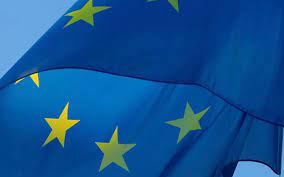EC-UNEP High-Level Meeting | Brussels, 19 June 2023

date: 10/07/2023
Ms Andersen appealed for the EU to keep the high ambitions of EU policies and maintain the global leadership. Indeed the implementation of the European Green Deal is critical as it is watched carefully by the rest of the world. Commissioner Sinkevicius emphasised that further work is needed, including at UNEA-6, on nexus approaches (environment, climate, security, food, energy etc), the priority to implement the Global Biodiversity Framework (GBF), ensuring high ambition in the negotiation of the global agreement on Plastics and a new science-policy panel on chemicals, waste and pollution, implementation of the commitments from UN Water and UN Ocean Conferences and scaling up cooperation on resource efficiency and high impact sectors towards inclusive green economy with inclusive green jobs.
The morning session, co-chaired by Director Astrid Schomaker and UNEP’s Director Sonja Leighton-Kone, reviewed the EC-UNEP cooperation, including at multilateral fora, joint policy work as well as programmatic cooperation. The session concluded by agreeing on priorities for future cooperation, including:
- preparations UNEA-6 (cf. EU priorities regarding Circular Economy; water-ecosystems-food-energy nexus/Water-Energy-Food-Ecosystem);
- advancing global dialogue on Sustainable Consumption and Production (potential UN conference on SDG 12);
- further work on engaging private sector and on financing mechanisms in relation to Plastics;
- to organise a specific thematic dialogue on Critical Raw Materials;
- in relation to chemicals and waste, to collaborate closely on preparations for establishing Science-Policy Panel on chemicals, waste and pollution and, in view of International Conference on Chemicals Management (ICCM 5), to advance the discussion on the financing of developing countries to be able to implement the new chemicals framework;
- as regards biodiversity, UNEP and EC cooperation needs to focus on supporting GBF implementation (national commitments, monitoring data and information sharing, financing) and building policy coherence;
- regarding climate change, align global financial flows with the Paris goals, will remain priority, as well as, building a joint agenda for climate and biodiversity.
The afternoon session, co-chaired by Director-General Florika Fink Hooijer and ED Inger Andersen, included beyond DG ENV and UNEP, a range of services (AGRI, CLIMA, ECHO, EMPL, ENER, INTPA, JRC, JUST, MARE, NEAR, RTD, SANTE as well as EEAS, EEA. The discussion addressed the environmental multilateralism in times of the crises, taking the perspective of the triple planetary crisis (climate change, biodiversity loss and pollution), exacerbated by the geopolitical situation and looming energy and food crises. The discussion demonstrated a shared understanding of the need for bringing together multiple strands of sectoral actions in addressing geopolitical challenges. It was illustrated by multiple examples from UNEP and EC services showcasing the interdependencies between climate and environment and achieving water, energy and food security objectives.
During the lunch-break, Commissioner Sinkevicius hosed a focused discussion with UNEP and Directors-General/representatives of several DGs and EEAS on environmental damages in Ukraine as result of the Russia’s war of aggression and the green recovery and reconstruction of Ukraine. The participants discussed how to join forces and explored what UNEP was doing and could do to assess environmental damages and help with the reconstruction. There is also a need to work with and train the Ukrainian administration in assessing environmental damages. Such task is huge and requires detailed planning and a systemic approach. UNEP’s proposals in this regard will be reviewed carefully in view of collaboration.
On the occasion of the High-Level Meeting, DG INTPA announced the extension of its support to UN Partnership on Green Economy (PAGE). DG RTD announced signing of a Letter of Intent with UNEP to support AU-EU Innovation Agenda. DG CLIMA announced the Commission Communication on Climate and Security.
More information:
